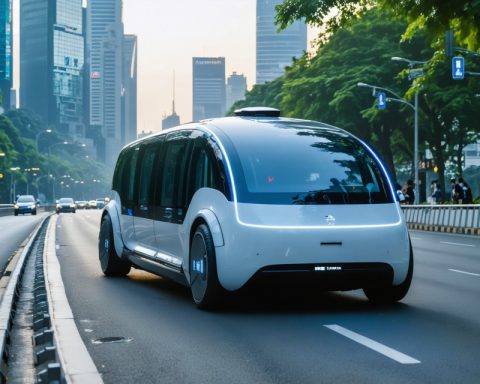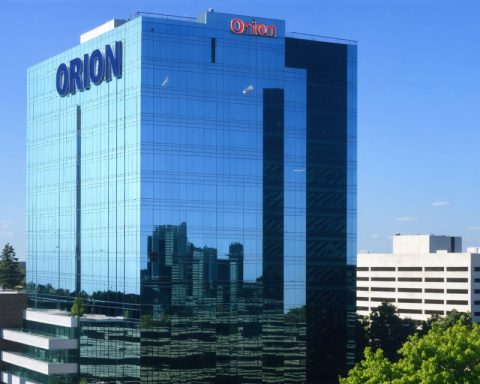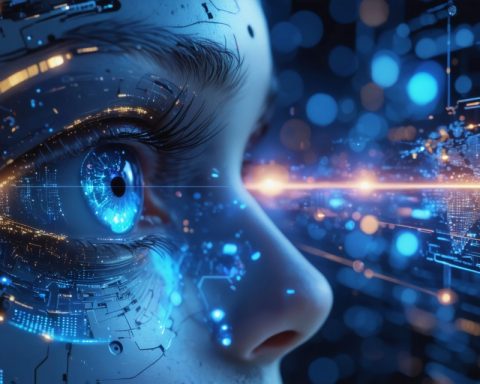The invisible hand of artificial intelligence (AI) is reshaping modern society in ways that are both revolutionary and, at times, unpredictable. As AI continues to evolve, its impact permeates various facets of life, from transforming workplaces to altering social interactions.
In the workplace, AI has facilitated increased efficiency. Robots and AI systems handle repetitive tasks, allowing humans to focus on areas that require critical thinking and creativity. However, this efficiency comes at a cost. Concerns around job displacement rise as more functions become automated, challenging traditional employment models.
Social interactions have also been redefined by technology. AI systems and their algorithms curate digital experiences tailored to individual preferences, often creating digital echo chambers that reinforce existing beliefs. This sparks debates on issues of privacy and digital ethics, as users grapple with the implications of their data being leveraged to influence opinions.
The health and wellness sector has undoubtedly benefited from technological advances, with AI enhancing diagnostic precision and personalized medicine. Nevertheless, this comes with concerns about the exclusivity and accessibility of cutting-edge treatments, raising questions about healthcare inequality.
Looking to the future, society faces the dichotomy of leveraging AI for progress and prosperity while also ensuring robust frameworks that address its disruptive potential. This requires informed dialogues, inclusive policies, and ethical guidelines to navigate the complexities introduced by AI and sustain a balanced societal evolution. The trajectory of AI’s influence on society will continuously be a pivotal subject of scrutiny and adaptation.
AI: The Double-Edged Sword Shaping Tomorrow’s Society
Artificial intelligence (AI) is rapidly transforming society, bringing both remarkable advancements and significant challenges. As we navigate this new era, it’s essential to explore the evolving aspects of AI that continue to redefine our world.
How AI Is Reshaping the Workplace
AI’s impact on the workplace is profound, offering both promising and concerning facets:
Features and Use Cases
– Automation of Repetitive Tasks: AI systems excel in automating menial tasks, freeing human workers to engage in roles requiring emotional intelligence and complex decision-making.
– Enhancing Decision-Making: AI provides predictive analytics that support strategic decisions, revolutionizing sectors like finance, logistics, and manufacturing.
Job Displacement Concerns
– Employment Models Shift: As AI replaces certain roles, there is a growing need for upskilling workers to fit new positions.
– Increased Robot-Human Collaboration: AI fosters collaborative robots (cobots) working alongside human staff, enhancing productivity and safety.
Social Dynamics in the Age of AI
AI is intricately linked to how we interact socially:
Privacy and Digital Ethics
– Algorithmic Bias: Users remain concerned about potential biases in AI systems perpetuating unfair stereotypes or misinformation.
– Data Privacy: The collection and utilization of personal data by AI tools highlight ongoing privacy concerns, urging better data protection practices.
Innovations in Healthcare
The health and wellness sector is witnessing a surge in AI-driven innovations:
Diagnostic Enhancements
– Improved Diagnostic Tools: AI algorithms provide precise diagnostic support, significantly reducing errors and expediting patient care.
– Personalized Medicine: AI enhances the ability to tailor treatments to individual genetic profiles, optimizing efficacy.
Challenges of Healthcare Inequality
– Access to Cutting-Edge Treatments: There’s a disparity in accessing advanced AI-driven healthcare solutions, often limited to affluent regions.
The Path Forward: Balancing AI’s Pros and Cons
Future societal advancements hinge on finding a balance between leveraging AI’s potential while managing its disruptive risks:
Ethical Guidelines and Policies
– Regulatory Frameworks: Establishing transparent, inclusive policies that foster innovation while safeguarding societal norms is crucial.
– Global Cooperation: International dialogue is necessary to address the global implications of AI, ensuring equitable progress.
Sustainability and Predictions
– Sustainable AI Development: Innovations are focusing on reducing the carbon footprint of AI systems, promoting environmentally conscious growth.
– Future Trends: AI is predicted to further influence areas such as quantum computing, biotechnology, and sustainable urban development.
As AI continues to redefine societal norms, it remains imperative to engage in continuous dialogue and foster ethical innovations that align with a sustainable, inclusive future. For more insights on how AI is revolutionizing different sectors, you can explore resources at [link name](https://www.example-ai-website.com).








